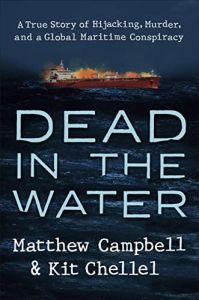Melden Sie sich bei getAbstract an, um die Zusammenfassung zu erhalten.

Melden Sie sich bei getAbstract an, um die Zusammenfassung zu erhalten.
Matthew Campbell and Kit Chellel
Dead in the Water
A True Story of Hijacking, Murder, and a Global Maritime Conspiracy
Portfolio, 2022
Was ist drin?
Learn about one of the most shocking cases of maritime insurance fraud – and the corruption that enabled it.
Recommendation
The world economy depends on shipping for the movement of global goods. Yet this international industry lacks transparency, with those in power hiding lawless and corrupt practices from the public, explain award-winning journalists Matthew Campbell and Kit Chellel. They spent more than four years investigating one of the most complex and ambitious cases of maritime fraud: the burning of the cargo ship Brillante Virtuoso. Risking their own lives to tell the story, Campbell and Chellel examine falsified reports, a purported pirate attack and a real murder, shedding much-needed light onto a shadowy industry.
Summary
About the Authors
Matthew Campbell is a reporter and editor at Bloomberg Businessweek. Kit Chellel is a reporter at Bloomberg, as well as a Businessweek magazine features writer.




























Comment on this summary